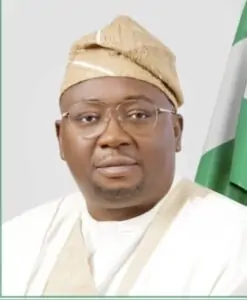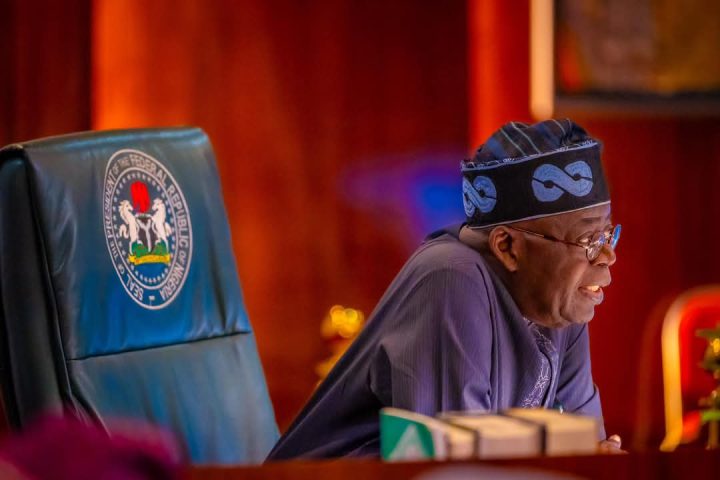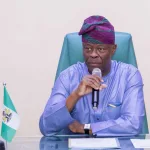Nigerian government has said the country stands to gain alot from the Samoa Agreement it recently ratified.
It said signing the agreement will among other things, foster international collaboration, generate investment opportunities, promote sustainable development, and fight climate change effects.
Join our WhatsApp ChannelNigeria signed the Samoa Agreement at the Organisation of African, Caribbean, and Pacific States (OACPS) Secretariat in Brussels, Belgium on 28 June 2024.
Prime Business Africa reports that the signing of the agreement has generated reactions from Nigerians including clerics, rights activists, and Civil Society Organisations (CSOs) who kicked against it, saying it has some clauses that compel underdeveloped and developing nations to support the agitations by the Lesbian, Gay, Bisexual, and Transgender (LGBT) community for recognition, as a condition for getting financial and other support from advanced societies.
They said that signing the agreement, implies Nigeria has accepted those tendencies.
The chided the government for signing the agreement to collect a $150 billion loan.
Prime Business Africa gathered that the agreement was named after the Pacific Island, Samoa, where it was signed on 15 November 2023 by all 27 member states of the European Union (EU) and 47 of the 79 OACPS member states.
Negotiations on the agreement started in 2018, on the sidelines of the 73rd United Nations General Assembly (UNGA).
Nigeria’s ratification of the deal came to public knowledge on Monday, July 1, when the Minister of Budget and Economic Planning, Alhaji Abubakar Atiku Bagudu confirmed it at a reception organised by the European Union (EU) in Abuja.
Media aide to the minister, in an interview, said what Bagudu signed was in relation to the $150 billion trade component.
READ ALSO: Nigeria Faces Backlash Over $150bn Samoa Deal Amid LGBTQ Concerns
The federal government in a statement released Thursday by the Minister of Information and National Orientation, Muhammed Idris, explained that signing the agrrement was done after extensive reviews and consultations by the Interministerial Committee, convened by the Federal Ministry of Budget and Economic Planning in collaboration with the Ministry of Foreign Affairs and the Federal Ministry of Justice.
According to the information minister, the agreement has 103 articles comprising “a common foundational compact and three regional protocols, namely: Africa –EU; Caribbean-EU, and Pacific-EU Regional Protocols with each regional protocol addressing the peculiar issues of the regions.
“The African Regional Protocol consists of two parts. The first is the Framework for Cooperation, while the second deals with Areas of Cooperation, containing Inclusive and Sustainable Economic Growth and Development; Human and Social Development; Environment, Natural Resources Management, and Climate Change; Peace and Security; Human Rights, Democracy and Governance; and Migration and Mobility.”
Idris further stated that before signing the agreement, it was ensured that none of the 103 Articles and Provisions of the Agreement contravenes the 1999 Constitution as amended or the laws of Nigeria, and other extant Laws.
It added that “Nigeria’s endorsement was accompanied by a Statement of Declaration, dated 26th June 2024, clarifying its understanding and context of the Agreement within its jurisdiction to the effect that any provision inconsistent with the laws of Nigeria shall be invalid.
“It is instructive to note that there is an existing legislation against same-sex relationships in Nigeria enacted in 2014.”
The government assured that President Bola Tinubu’s Administration will not enter into any international agreement that will be against the interest of the country and its citizens.
“In negotiating the Agreement, our officials strictly followed the mandates exchanged in 2018 between the EU and the OACPS for the process.
“The Samoa Agreement is nothing but a vital legal framework for cooperation between the OACPS and the European Union, to promote sustainable development, fight climate change and its effects, generate investment opportunities, and foster collaboration among OACPS Member States at the international stage,” it added.
However, in a detailed article on the matter, a Lagos-based lawyer and Chairman of the Human and Constitutional Rights Committee, African Bar Association (AfBA), Sonnie Ekwowusi, queried the rationale behind signing such agreement even after several meetings were held with Nigerian officials, and memoranda sent to them.
He insisted that that there are certain articles in the agreement that legalise LGBT which is against African countries. He warned that signing the agreement constitutes a threat to Nigeria’s democracy.
“The Samoa Agreement, named after the Pacific Island, Samoa, where it was signed on November 15, 2023, is a celebration of perversity. Certain Articles of the Agreement especially Articles 2.5 and 29.5 legalise LGBT, transgenderism, abortion, teen sexual abuse, and perversity in African countries,” Ekwowusi stated.
“The signing of the Agreement by Nigeria constitutes a threat to the sovereignty of Nigeria and Africa. It further debases our democracy.”
The legal expert asserted that the Nigerian officials who ratified the deal do not “understand the import of the agreement to Nigeria’s sovereignty, let alone the destructive impact of the Agreement in Nigeria.”
He recalled that Nigeria had on 15 November 2023, refused to sign the deal, and wondered why the government suddenly changed its mind and went signed it.
He further listed 34 other African countries that had refused to sign the agreement. Some of them include Republic of Benin, Senegal, Liberia, Botswana, Burundi, Jamaica, Mali, Rwanda, Tanzania, and Uganda.
Victor Ezeja is a passionate journalist with seven years of experience writing on economy, politics and energy. He holds a Master's degree in Mass Communication.



















Follow Us